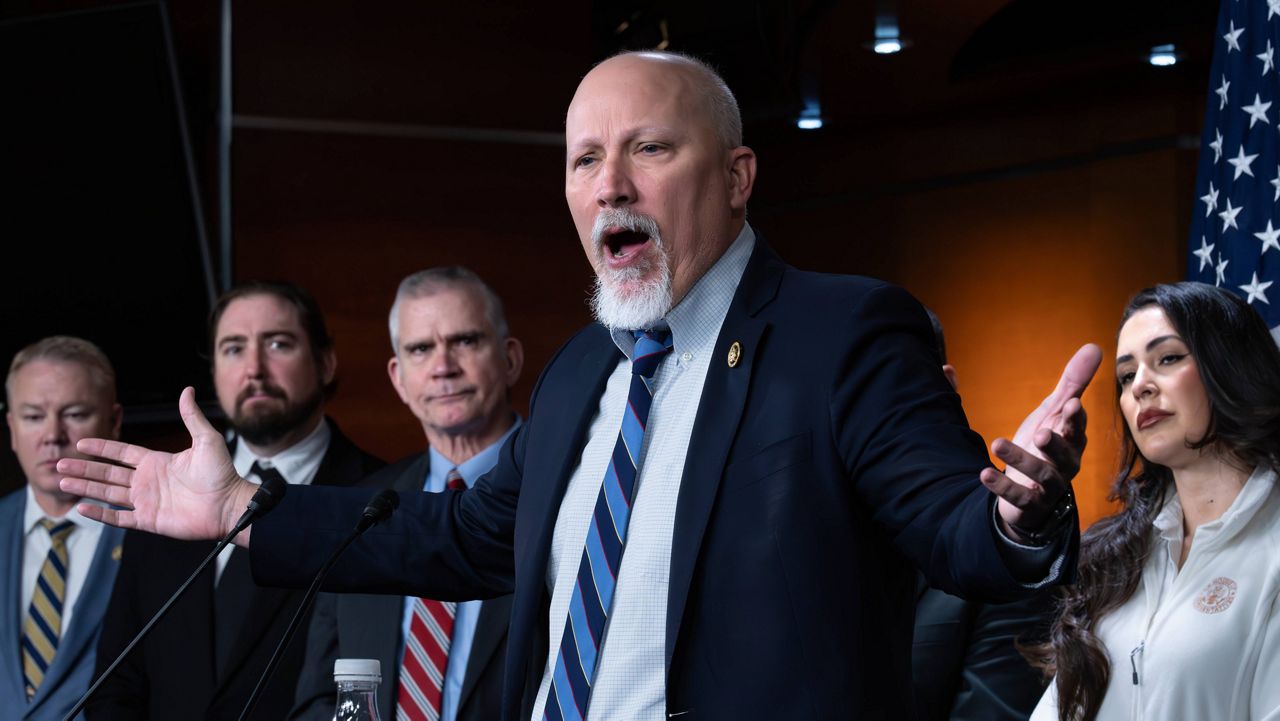WASHINGTON — A cohort of House conservatives is pushing for changes and higher scrutiny of federal spending on Medicaid as part of Republicans' effort to pass President Donald Trump’s agenda through Congress. Meanwhile, moderates in the party are expressing concerns about potential cuts to the program.
The divergent perspectives within the GOP speak to what could become a sticky hurdle in the process — currently underway — of crafting the legislation to cement Trump’s priorities on tax cuts, the border, defense and energy, and ultimately getting enough Republican votes from within their narrow majority in the House for it to pass.
In a letter to congressional colleagues Thursday, Rep. Chip Roy, R-Texas, called for “meaningful reforms that address structural and fiscal failures” of Medicaid, the government-funded health insurance program for low-income Americans. He noted that “Federal Medicaid spending has surged.”
Among the reforms proposed in the letter is ending the boost in federal funding support states that expanded Medicaid coverage via the Affordable Care Act receive through the enhanced federal matching rate, or FMAP.
“A state should not receive more federal support for a healthy adult who gained coverage through Obamacare expansion than a low-income child with a disability,” Roy wrote, referring to the colloquial name for the Obama-era Affordable Care Act. “Congress should ensure the FMAP for able-bodied adults matches everyone else.”
Speaking to reporters earlier this week, Roy criticized some in his party for hesitancy around such changes and federal spending cuts, noting they are largely lawmakers who “did not vote for Obamacare who are now saying, ‘Oh, we can’t touch the Obamacare expansion.’”
“I’ll take whatever cut I can get but then don’t go try to sell me the tax numbers if they don’t add up,” he added, referring to the decrease in revenue the federal government would take in from the tax cuts Trump and other Republicans want included in the bill.
Roy’s letter received the backing of 19 other House Republicans, a sizable amount given that the party can only afford to lose a handful of votes on any given legislation in which Democrats are uniformly opposed.
On the other hand, those considered more moderate in the GOP and those who hail from districts in which a large portion of their constituency is on Medicaid have warned for weeks that they would not support cuts to the program.
“My bottom line is, I am not cutting benefits for eligible recipients, period,” Rep. Mike Lawler, R-N.Y., told CNN on Thursday.
“I will not support any cuts to eligible, legal individuals or facilities,” Rep. Jeff Van Drew, R-N.J., told reporters this week.
Concern from some moderates was sparked early in the process of crafting Trump’s legislative agenda, which Republicans are doing through a process called reconciliation, which allows them to bypass the need for any Democratic support in the Senate.
The budget resolution passed in the House — which serves as a blueprint for the bill but is not the final legislation — calls for savings of $880 billion on programs under the House Energy and Commerce Committee, something that could impact Medicaid.
The House is currently in the process of drafting the final legislation with multiple committees holding markups on their portions of the bill this week and another tranche set to do the same next week. House Speaker Mike Johnson, R-La., told reporters at a briefing Tuesday that the Budget Committee will spend the following week merging those pieces together to form the final legislation, referred to by Trump and Republicans as “one big, beautiful bill.”
Johnson, along with other House GOP leaders and House Energy and Commerce Committee Chair Rep. Brett Guthrie, R-Ky., met with Trump on Thursday to discuss the bill.
Trump has pledged not to cut Medicaid for those who are eligible while, at the same time, calling for a weeding out of “waste, fraud and abuse” in the program, which some Democrats and critics argue will lead to cuts nonetheless.
Democrats have been seeking to sound the alarm on potential cuts to Medicaid. On Friday, the Democratic National Committee and the campaign arm of House Democrats announced a “Fight to Save Medicaid month of action” that will specifically target four House Republicans the party considers vulnerable in the 2026 midterms: Reps. Tom Barrett of Michigan, Don Bacon of Nebraska, Lawler and Brian Fitzpatrick of Pennsylvania.
“House Republicans have lost the trust of the American people and are on track to lose in the midterms because of their record of broken promises,” DCCC Chair Suzan DelBene said in a statement announcing the effort. “They’ve consistently sold out their own constituents to please their billionaire backers, even when it means supporting catastrophic cuts to health care access.”




